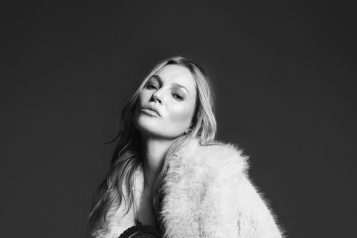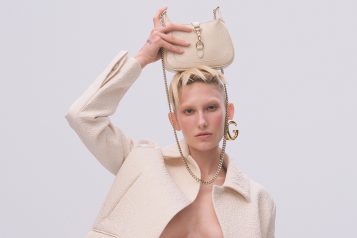Haute Living: Many have said that Sundance Film Festival had gotten too commercial. This was your first year as director, and it was reported that your goal was to “return the festival to its artistic roots.” How successful was that endeavor?
John Cooper: I think it was very successful. And it’s so funny; I never really said that. Those words, they got pinned to me over and over again. [Robert] Redford [editor’s note: the founder of the Sundance Institute] said it, and what Redford says is pretty much a done deal. He said it at the press conference, and even then I corrected him then, and he kind of got mad. He was like, “Oh, thanks!” It’s all semantics at this point. But I made “Sundance Reminded” as the 2010 theme, because I wanted to remind us why we were there in the first place, and also remind the audience. I wanted to remind everyone what the mission of Sundance is. Lots of people think we are all about sales and the market place. And, yes, we do like sales at the end of the film festival, and we do like filmmakers to make their money back for the films they created. But at the same time, the event itself isn’t based on selecting films to sell, it’s about selecting the films that are the best, the most original—the most original stories and the most original way the stories are told on film.
HL: What is your day-to-day schedule like?
JC: It isn’t so much day-to-day but season by season. For example, right now we are in wrap mode, where we are getting a lot of the financial figures in. The one thing that a lot of people don’t know is that the all of the profits from the festival go to supporting the Sundance Institute and the work that we do 365 days a year. So it’s a big responsibility. I have a bottom line that I have to hit to keep our year-round programming solvent.
Very soon, we go into the budgeting process. For me, it’s not about numbers on paper, it’s more what I did, what I want to change, what we want to throw out and what we want to add. And then determining the cost of adding those things. Then in May, we go into set-up mode and work on getting all of those things into place.
We start programming in earnest in the middle of August, and it heats up as we go along. We go to the Toronto Film Festival and we are looking at films, talking to filmmakers and producers, and telling the whole community that we are open for business, asking, “What films do you have for us to look at?”
Then we have to sit down and watch all of the submissions. The process is big, long, and hard, and it is the most rigorous part of the year. It’s like we are in training in a way, because we have a lot of films to get through. I have a staff that is of course helping, but my schedule is filled with a lot of watching, all day, all week. There are a few months where we have no weekends. People always assume that this is all fun and say, “You are just watching movies!” Yeah, but a lot of them are bad movies, and we are judging movies not just watching movies. This goes on for a few months until we are completely reclusive and shut down.
And then we come out with the announcements [about which films made the festival]. This triggers the whole pre-festival—the press announcements, getting orientations for the filmmakers, and getting everything all geared up for the event.
Then there is the event, which is another brain tease. It’s all social; I always laugh that it is like 10 days of being in a wedding—an all-day wedding. And every day is sort of like five days. I have a lot of duties and sponsorship activities that I participate in.
HL: How many films do you watch when making selections for the festival?
JC: Probably in the 250 range. My staff watches a lot more than that. In total, I probably watch about 500 a year. During the intense times, I am watching seven to eight a day. It’s a weird life choice. What’s really strange is that you are entering so many worlds; you go from the desert in Afghanistan to a love story in New York to heroin addicts in L.A. The worlds you go into are mind-boggling. My dreams change when I am watching lots of movies. Your psyche gets a little changed. The other result from watching so many of these documentaries that I know little pieces about subjects that are kind of random. I know all about cane toads in Australia, and what it is like to be in an outpost in Afghanistan, or to be a paparazzo in Los Angeles. It’s weird, the different worlds that you go into.
HL: What other film festivals do you visit each year?
JC: I go to a few a year, and I am trying to find different ones. I always go to the Cannes film festival. This year, I’ll probably go to the Sydney Film Festival, because we show films from Australia, and we have never been there. I also go to London, because we show a lot of British films.
In Part Three of the interview, John shares his thoughts on “Big Budget” films and the power of technology. Come back tomorrow to check it out.



















